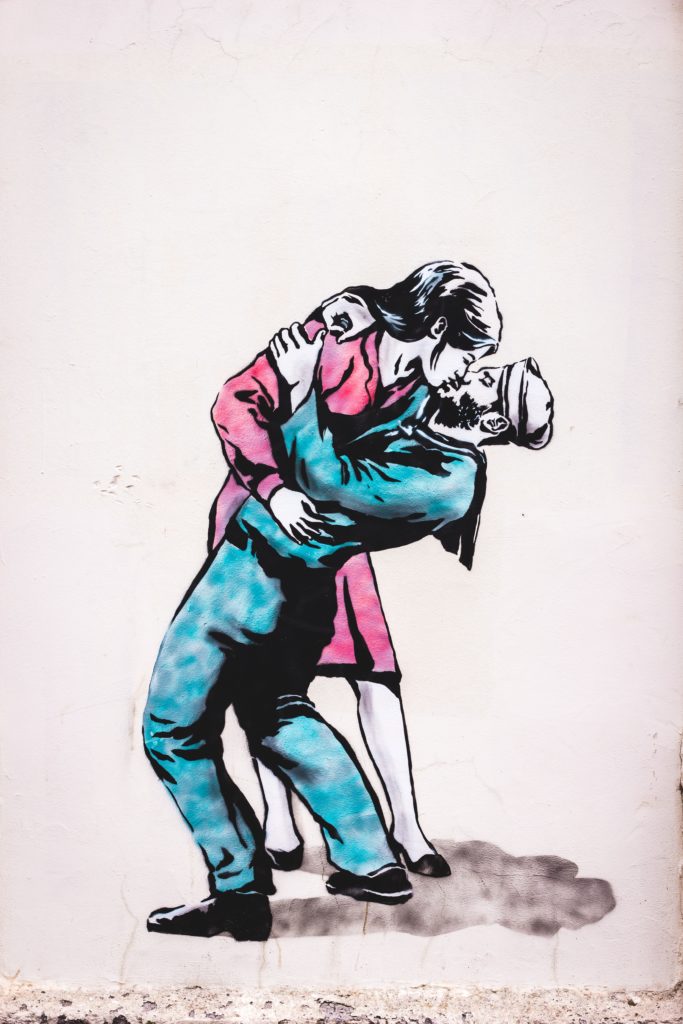In this interview, I talked to my former classmate Diana Rocío Rodríguez Benítez who specializes in the evolution of ‘gender ideology’ as a phenomenon pertinent to the Americas and Europe. In particular, Diana’s academic interest lies in discovering the role which anti-‘gender ideology[1] has played in Colombia since 2016. This was the year when the landmark peace deal between the government and FARC (the Revolutionary Armed Forces of Colombia) was signed but did not come into force, as the referendum on the deal turned out to be the victory of the no-vote. However, after the revision of the agreement, which removed gender focus from the document, it was ratified by both Houses of Congress. As Diana researched the subject in-depth, I wanted to hear her opinion on the role of ‘gender ideology’ misperception within the scope of the entire nation and whether one might expect the situation to change in the foreseeable future.
Tanya: Could you please say a few words about your master’s thesis?
Diana: I wrote about ‘gender ideology’. It was a discourse analysis based on four actors because all these actors were against this so-called ‘gender ideology’. This created the political agenda against diversity. Everything that seems different is something that you cannot accept within what is considered to be right.
T: Could you make some examples of how the actors that you talk about use ‘gender ideology’?
D: The first thing I would say is that the whole gender ideology is a fake construct. It is not something that is legit in academic terms. Today everybody knows its meaning, but before 2015 it was something nobody knew about. It was created by the Catholic church, and then it evolved into the whole movement.
Secondly, here in Colombia it is linked to the decision by the Constitutional Court that every school had to review their Code of Conduct keeping in mind that every school should have an inclusive environment. To which they (anti-gender agents) said that this was the violation of the schools’ and parents’ autonomy to teach kids about sexuality and diversity.
It was a decision based on the precedent. There was a very sad case of the teenage boy Sergio Urrego. At the school he studied the director and the psychologists found a photo of him and another male student kissing. They then forced the two of them to come out publicly, which they hadn’t done before. And because of that Sergio killed himself.
In Colombia we have this legal mechanism: when your fundamental rights are violated you can write a piece of paper and then send it to the Supreme Court. Sergio’s mom did that, and then the Constitutional Court issued a ruling which guaranteed the rights that were violated. Based on this ruling they created different orders, and one of them was the one I mentioned regarding the Code of Conduct[2]. All of this happened during the referendum and peace agreement negotiations, and the referendum had this strong gender focus. The four actors whom I then analysed in my dissertation also said that peace agreement was going to turn our kids gay, and was filled with gender ideology, which was not true––it was fake.
T: How unpopular was the decision and how big was the anti-gender ideology movement?
D: A lot of people went out to protest it. The leaders were far-right politicians, and the Catholic church together with other Evangelical church. And it was huge. I remember reading and watching the news, and there were a lot of angry people protesting. At that time the Minister of education was a lesbian woman. The protesters went around saying that she is lesbian who is trying to mess our kids. It was quite huge not only in Bogota, but all over the country.
T: Did they achieve anything?
D: There is no causal relationship, as there is not enough evidence to link one event to the other, but this topic was without a doubt something that people talked about and feared. I don’t know if they achieved their goal, but, for sure, the no-vote won, and this ruling is not being executed. I am doing volunteer work with the mom of Sergio. She created an NGO[3]. And nothing has changed during these four years. The decision is not on hold, but there is a lack of the political will.
T: Are there a lot of similar cases?
D: Not a lot, but this case was huge because there was the decision of the Constitutional Court. Not a lot, but a few. Not only in school environments, but also other contexts when people are the victims of discrimination, which is a crime.
T: Can people seek any legal help in such situations?
D: Of course. If there is a judicial proof that someone was discriminated based on their sexual orientation or gender identity, religion, ethnicity, then yes, the offender can face jail time.
T: Are there any legal instruments that can support them?
D: There are. We actually have a lot of legal instruments and institutions, which on paper look very good and progressive and guarantee rights. But I would say we are not there yet. We are not a progressive society. You have all of these mechanisms, legal and disciplinary, but when the time comes for you to validate your rights, it is hard. If you go to a state institution, most of the people there have no clue about gender focus or what LGBTQ stands for. It is hard, but the instruments and mechanisms are there.

T: Would you call it a problem of a conservative mindset and the lack of awareness?
D: Yes, this is a country which is very conservative. We don’t see us as a cohesive society, we don’t stand for our rights. We have never done this. We have this word in Spanish ‘’arribista” which means that you always want something for yourself, something that you don’t have. You want to go to the best school, you want to have the last iPhone, this superficial lifestyle, but it is not only about the iPhone. I do think that these things are connected to each other. We are a very unequal country. Going to school here is a privilege. Reading the news in English is an incredible privilege. Most people see what the local news show.
T: You stress the fact that Colombia is not a very wealthy country, however did you find any similarities between Colombian case and developed states?
D: I think that ontological security is the key. It is how people feel insecure when their basis is being disturbed. If your whole life you have had a certain mindset, and then all of a sudden, although it has been years of progress, but people think that it is all of a sudden, then they say something about gender, diversity and inclusion, different ways to do things and the structures. But definitely there are countries where institutions are not strong and people are not that educated, then things tend to stick more.
T: Are there any examples of people waking up and realizing that it is actually a delusion that is being promoted? Or are we in a hopeless position?
D: I don’t think people realize that it was a delusion. Here it was crazy because by the time of the referendum there was this person who was the press secretary of the whole no-campaign. After the vote, he gave an interview in which he literally said that people were tricked, and they used different discourses based on the socio-economic levels. Here we have numbers. Houses are ranked on the scale from one to five, one being the poorest and five being the richest. So, if you live in a house, but you don’t have access to education or social care, then you are one. If you are middle class, you are three. They created strategies depending on this division. He said to the poorest ones that the deal was going to spread the ‘gender ideology’ because they knew that people were afraid of it. There are people who believe that ‘gender ideology’ is true. It is something you have to be aware of. One of them being my aunt. You don’t have to look any further. Even in my family. I am quite hopeless.
T: You often underscore that you have a strong belief in the youth. Do you think with the change of generation it might be different?
D: I hope so, I really do. I am doing some volunteering work with the Truce Commission, and I am working with a couple of interns. Surely, they are privileged, but still they are pretty smart and aware of all of this. I also think that one thing is here in Bogota, women who are privileged, and a completely different thing if you go to the jungle, the Amazon region, or to other places where you don’t even have running water. So, I wouldn’t dare to have an answer to that as I am not in touch with the younger generation. We will see. I really hope so.
Notes:
[1] ‘Gender ideology’ is the phenomenon in which people defend the traditional family values, where female and male roles are established. The term is closely connected to the debates within the Catholic Church. Anti-’gender ideology’ is directed against gender, and counteracts questioning of the binary gender model.
[2] On the website of the Constitutional Court of Colombia they refer to the codes as “manuals of coexistence”
[3] Fundación Sergio Urrego
Related articles:
Gender Is Bending and We Should Embrace the Change
Photo Credits:
Bandera arcoiris, by Natalio Pinto, CC BY-NC-SA 2.0
By Crawford Jolly on Unsplash






